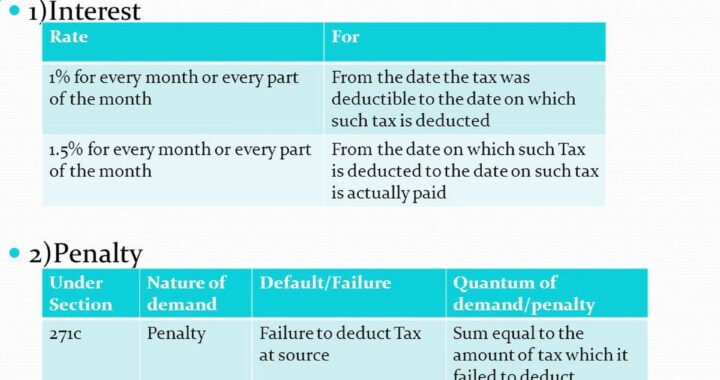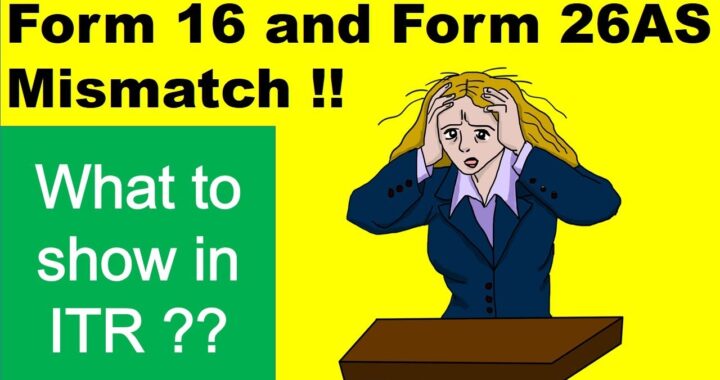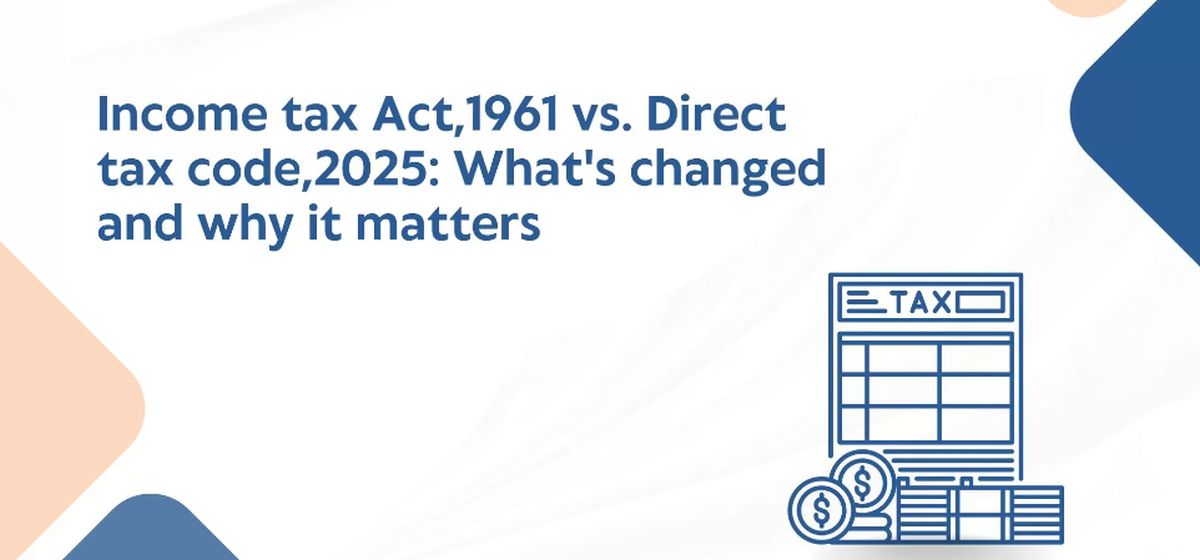If the Assessee discharges the primary burden of proving creditworthiness of creditors, the onus shifts upon revenue to prove otherwise
 The ITAT, Lucknow Bench in the case of Vishnu Jaiswal vs. Commissioner of Income Tax (Appeals), IT Appeal No. 336 of 2011 for the (Assessment Year 2006 – 07) has held that if the Assessee discharges the primary burden of proving creditworthiness of creditors, the onus shifts upon revenue to prove otherwise.
The ITAT, Lucknow Bench in the case of Vishnu Jaiswal vs. Commissioner of Income Tax (Appeals), IT Appeal No. 336 of 2011 for the (Assessment Year 2006 – 07) has held that if the Assessee discharges the primary burden of proving creditworthiness of creditors, the onus shifts upon revenue to prove otherwise.
Mr. Sunil Kumar Yadav, Judicial Member passed the said judgment on 1.5.12.
Backgrounds of the case:
The appeal was preferred by the assessee against the impugned order of the ld. CIT (A) on two grounds. One ground was relating to the addition of Rs. 3.50 lakhs under section 68 of the Income Tax Act, 1961. The other one was relating to the disallowance of telephone expenses of Rs. 5,000/- based on estimation.
In connection with the addition of Rs. 3.50 lakhs, it was observed by the Assessing Officer that the assessee alleged to have received Rs. 3.50 lakhs as unsecured loan from his creditors Shri Sant Lal Jaiswal, Smt. Kiran Jaiswal and Shri Dheeraj Jaiswal. The assessee claimed to have received another loan of Rs. 2.50 lakhs from Shri Sant Lal Jaiswal and Rs. 50,000/- from both Smt. Kiran Jaiswal and Shri Dheeraj Jaiswal.
The Assessing Officer noticed from the bank accounts of Shri Sant Lal Jaiswal and Shri Dheeraj Jaiswal that before issuing cheques for the loan amount, equal amount of cash were deposited in their accounts to make a credit balance and to ensure that the cheques were duly honoured. The source of such cash deposits were not explained before the Assessing Officer.
However the loan creditors, Shri Sant Lal Jaiswal and Shri Dheeraj Jaiswal, were assessed to income tax, but the amount of income filed by them in their returns after deducting the amounts required for their own expenses, were not found to be capable of those cash savings which could make up for a source of such cash deposits in their respective bank accounts.
Regarding the loan from Smt. Kiran Jaiswal, no details of bank account was furnished. The Assessing Officer was not satisfied with the explanation of the assessee, as such treated the total unsecured loan of Rs. 3.50 lakhs as unexplained cash credit. Accordingly addition was made under section 68 of the Income Tax Act.
The assessee field an appeal before the ld. CIT (A) against such addition. The assessee contented that he placed his evidence on record to prove the creditworthiness of the cash creditors and the authenticity of the transaction.
From the details of the returned income of the three creditors filed before the Department, the ld. CIT (A) noted that all the cash creditors have shown small amounts of withdrawals for household expenses which seemed to show higher cash balances for explaining the cash deposits in the bank account for the purpose of advancing of loan.
The ld. CIT (A) was not convinced with the income of the cash creditors and expressed the view that the alleged cash creditors were fake. Accordingly the ld. CIT (A) confirmed the addition.
Thereafter the assessee preferred an appeal before the Tribunal. None appeared on behalf of the assessee. However, he filed written submissions on his behalf. He also filed copy of bank accounts of his creditors namely Shri Sant Lal Jaiswal and Shri Dheeraj Jaiswal with their confirmations. The assessee also filed the copy of their cash flow statements to substantiate the source of cash. The copy of acknowledgment of return of income was also filed.
Judgment relied upon:
The assessee also relied upon the following judgment delivered in the case of Anand Prakash Agarwal v. Asst. CIT [2008] 6 DTR 191, to support that he is only required to prove the authenticity of the transaction and identity of his creditors.
Arguments of both the sides:
The assessee submitted that once he has received unsecured loan through cheque and the creditors have confirmed them, the initial onus which lied upon him to prove the genuineness of the transaction and identity of the creditors has been duly discharged. The assessee does not require proving the source of cash deposited in the accounts of his creditors. The assessee has discharged his initial onus; as such the addition on account of unexplained cash credit is not justified.
The Revenue contended that in the case of Shri Sant Lal Jaiswal and Shri Dheeraj Jaiswal, the cash was deposited in their accounts before the date of issuance of cheques. The return of income of Smt. Kiran Jaiswal stated that she has annual income of Rs. 16,200/- only. She did not file the copy of bank account to explain the source of deposits. Moreover she was required to make drawings for paying household expenses. Thereafter, nothing should remain for the creditor to give loan to the assessee. The cash flow statements of Shri Sant Lal Jaiswal and Shri Dheeraj Jaiswal indicated that the household drawings assessment year 2006-07 could not be sufficient to meet the expenses even for a very poor man.
As the assessee failed to prove the creditworthiness of the creditors, the Revenue was right in treating the unsecured loan as unexplained cash credit. For the said reasons, the addition in the hands of the assessee was justified.
The judgment:
The rival submissions of both the parties were considered. It was observed by the Tribunal that in the case of Shri Sant Lal Jaiswal and Shri Dheeraj Jaiswal the assessee has filed bank statements from where it was noted that the cash equal to the amount of loan was deposited in their bank accounts before issuing the cheques in favour of the assessee. The source of the cash deposits was not properly explained. No other evidence was filed to prove the creditworthiness of the creditors. The cash flow statements of Shri Sant Lal Jaiswal and Shri Dheeraj Jaiswal were also examined wherefrom it was observed that the household withdrawals shown were very low to generate capital.
It was held that the creditors were not financially capable of advancing loan to the assessee. As the creditworthiness of the creditors were not proved, the order of the ld. CIT(A) confirming the addition made by the Assessing Officer under section 68 of the Act was not set aside. The findings of the ld. CIT (A) were confirmed. Accordingly the addition was confirmed. The disallowance was reduced. As a result, the appeal of the assessee was partly allowed.

 Can an assessee pay House Rent to his parents and claim relief? Would there be any legal complications?
Can an assessee pay House Rent to his parents and claim relief? Would there be any legal complications?  Boost Your Business & Reduce Taxes: A Guide to Maximizing Benefits Under Section 80JJAA
Boost Your Business & Reduce Taxes: A Guide to Maximizing Benefits Under Section 80JJAA  What is remedy to taxpayer if the Tax deductor fails to deposit the TDS or fails to file TDS Return
What is remedy to taxpayer if the Tax deductor fails to deposit the TDS or fails to file TDS Return  What is Income Tax Liability on Income from trading in Future and Options
What is Income Tax Liability on Income from trading in Future and Options  The Importance of Filing Your Income Tax Return on Time: A Financial Must-Do
The Importance of Filing Your Income Tax Return on Time: A Financial Must-Do  Is Addition made by Assessing officer on basis of mismatch between AIR and F26AS Justified
Is Addition made by Assessing officer on basis of mismatch between AIR and F26AS Justified  Major Changes Expected in Direct Tax Code 2025 and why these matter
Major Changes Expected in Direct Tax Code 2025 and why these matter